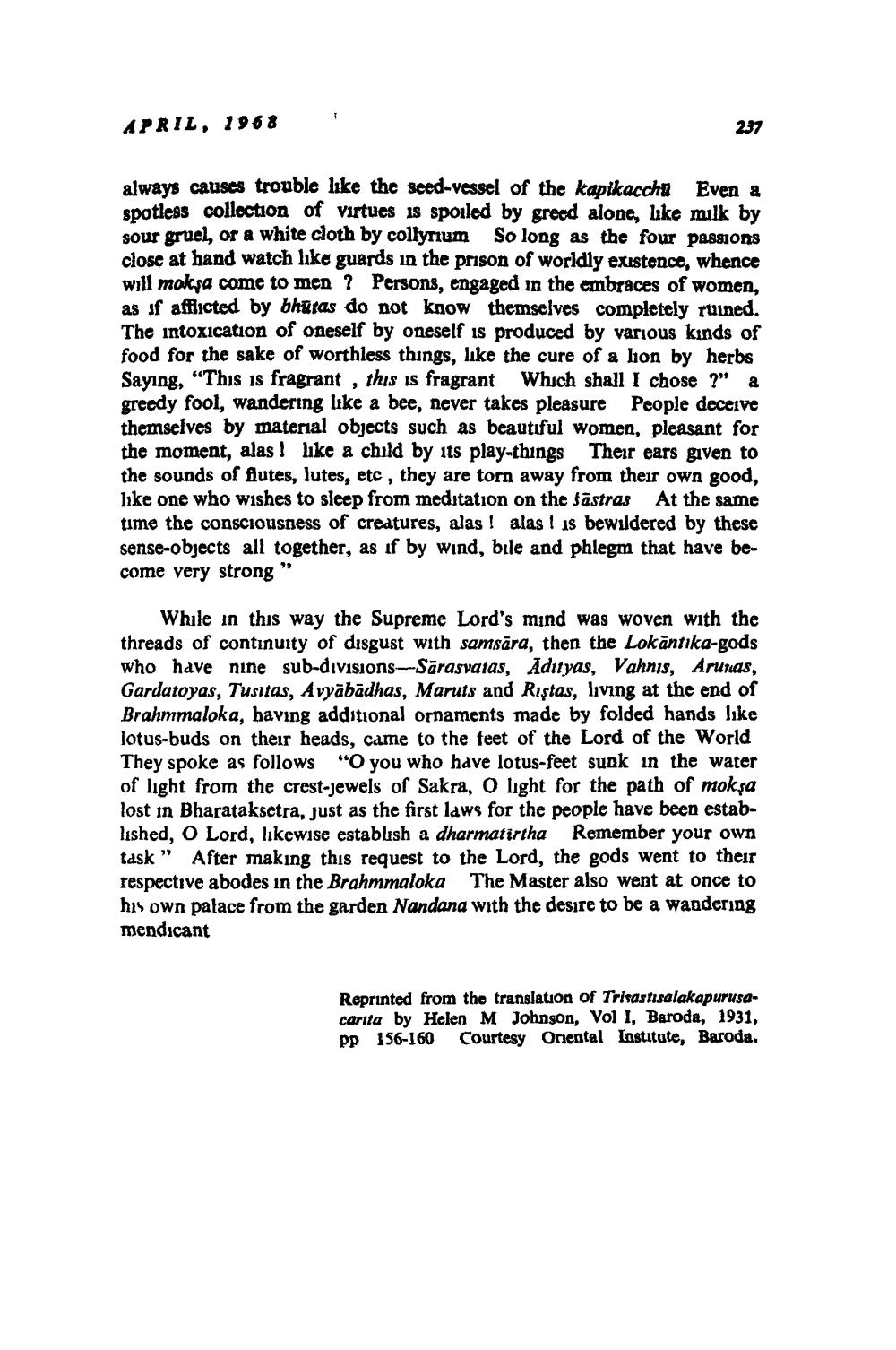________________
APRIL, 1968
237
always causes trouble like the seed-vessel of the kapikacchu Even a spotless collection of virtues is spoiled by greed alone, like milk by sour gruel, or a white cloth by collyrium So long as the four passions close at hand watch like guards in the prison of worldly existence, whence will maksa come to men ? Persons, engaged in the embraces of women, as sf affilicted by bhuras do not know themselves completely ruined. The intoxication of oneself by oneself is produced by various kinds of food for the sake of worthless things, like the cure of a lion by herbs Saying, “This is fragrant , this is fragrant Which shall I chose ?" a greedy fool, wandering like a bee, never takes pleasure People deceive themselves by material objects such as beautiful women, pleasant for the moment, alas ! like a child by its play-things Their ears given to the sounds of flutes, lutes, etc , they are torn away from their own good, like one who wishes to sleep from meditation on the fāstras At the same time the consciousness of creatures, alas! alas ! is bewildered by these sense-objects all together, as if by wind, bile and phlegm that have become very strong "
While in this way the Supreme Lord's mind was woven with the threads of continuity of disgust with samsāra, then the Lokäntika-gods who have nine sub-divisions--Sarasvatas, Adityas, Vahnıs, Arunas, Gardatoyas, Tusitas, Avyābādhas, Maruts and Rıştas, living at the end of Brahmmaloka, having additional ornaments made by folded hands like lotus-buds on their heads, came to the teet of the Lord of the World They spoke as follows "O you who have lotus-feet sunk in the water of light from the crest-jewels of Sakra, O light for the path of mokşa lost in Bharataksetra, just as the first laws for the people have been established, O Lord, likewise establish a dharmatirtha Remember your own task" After making this request to the Lord, the gods went to their respective abodes in the Brahmmaloka The Master also went at once to his own palace from the garden Nandana with the desire to be a wandering mendicant
Reprinted from the translation of Trisastusalakapurusacarita by Helen M Johnson, Vol I, Baroda, 1931, PP 156-160 Courtesy Oriental Institute, Baroda.




